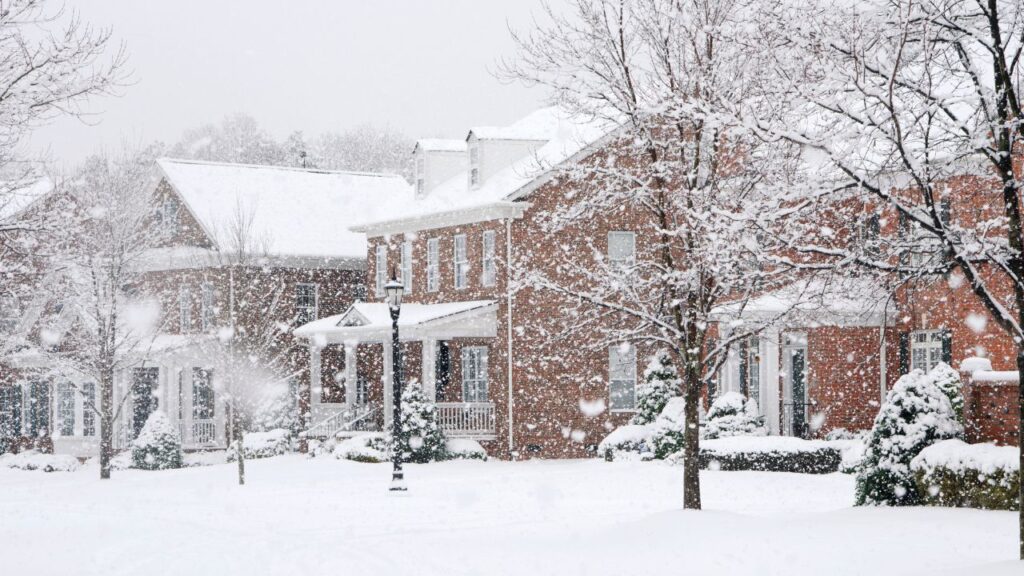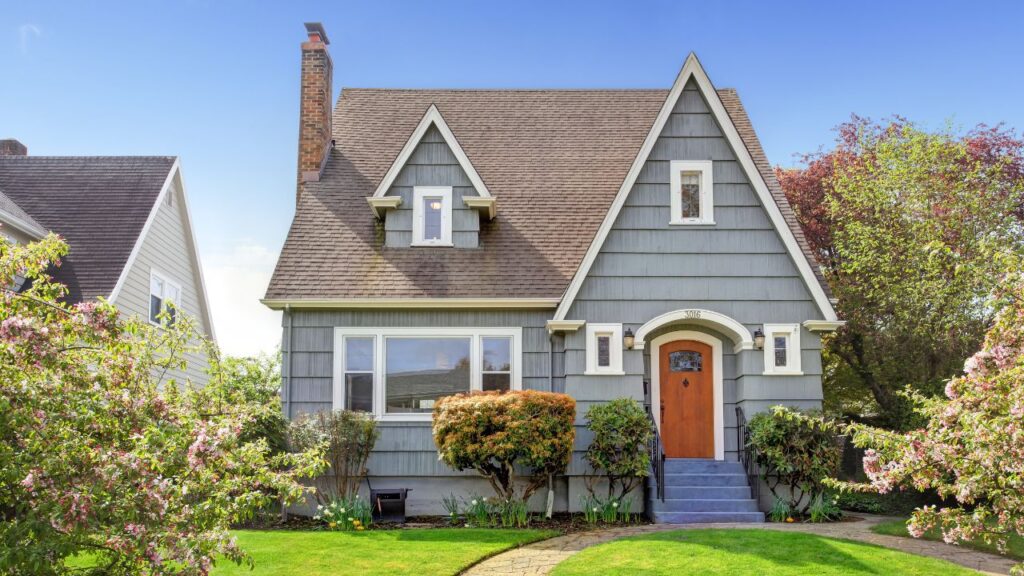When is the Best Time to Buy a House?
Determining the best time for buying a house requires careful consideration of multiple factors. In this deep dive, we’ll explore the seasonal patterns of the real estate market, economic factors that influence home prices, and personal considerations that might help you determine the opportune time to make your home purchase. Whether you’re a first-time homebuyer or looking to upgrade your living situation, understanding these patterns can give you more negotiation power and potentially save you thousands of dollars.
Seasonal Patterns in the Housing Market
The real estate market typically follows predictable seasonal patterns that can significantly impact your home buying experience. Let’s examine how each season affects the housing market and when you might find the most advantages as a buyer.
Winter Months: Hidden Opportunities

The winter months (December through February) are often overlooked in the home buying process, but they can offer unique advantages for savvy buyers:
Less competition: With fewer buyers braving the cold weather and holiday distractions, you’ll face significantly less competition when making offers.
More negotiation power: Sellers who list during winter are often more motivated, giving buyers the upper hand in negotiations.
Lower prices: According to the National Association of Realtors, home prices tend to dip during winter, with January typically offering some of the lowest prices of the year.
The winter months can be an opportune time for buying a house due to these unique advantages.
While inventory may be limited during this season, the sellers who do list their homes are often highly motivated, which can translate to better deals. The reduced competition means fewer bidding wars, allowing you to negotiate more confidently on price and contingencies.
Spring: The Busiest Season

Late spring (April through June) is traditionally the most active time in the housing market:
More inventory: More homes come on the market, giving buyers more options to choose from.
Optimal viewing conditions: Properties tend to show better with blooming landscapes and longer daylight hours.
School year considerations: Families with children often prefer to move during spring to settle before the new school year begins.
The downside? Spring is also when you’ll face the most competition, potentially leading to bidding wars that drive prices above market value. This season typically sees the highest demand, which often makes it the worst time to buy if your primary goal is securing a good deal. While spring offers more options, buying a house during this season can be challenging due to heightened competition.
Summer: Transitional Opportunities

Early summer continues the busy spring market, but late summer (August) can offer a strategic window:
Motivated sellers: Sellers who haven’t closed deals during the peak spring season may be more willing to negotiate.
Back-to-school timeline: Families looking to settle before school starts create a sense of urgency, potentially leading to quicker deals.
More options: Inventory typically remains high, giving buyers plenty of choices.
Summer can be a strategic time for buying a house, especially with motivated sellers and ample inventory.
By late summer, properties that have been sitting on the market might see price reductions, creating opportunities for buyers who missed out during the spring rush.
Fall: The Buyer’s Advantage

Early fall (September through October) is often cited by real estate experts as the best time to buy a house:
Fewer buyers: With school back in session and holidays approaching, the market typically sees reduced competition.
Motivated sellers: Sellers who want to close before winter are often more willing to negotiate on price and terms.
Price reductions: Homes that didn’t sell during summer may see significant price cuts, especially in October.
Economic Factors Beyond Seasonality
While seasonal patterns provide a helpful framework, economic factors often play an even more significant role in determining the best time to buy. Here are crucial economic indicators to monitor:
Mortgage Interest Rates
Perhaps no single factor has a more significant impact on your ability to afford a home than mortgage rates:
A 1% difference in your mortgage rate can translate to tens of thousands of dollars over the life of your loan.
When rates drop, your buying power increases substantially.
The Federal Reserve’s policies often signal the direction of future mortgage rates.
Rather than focusing exclusively on seasons, many chief economists recommend buying when rates are favorable, regardless of the time of year. Securing a mortgage with a lower interest rate can make a much bigger difference to your long-term finances than buying during a particular month. When mortgage rates are favorable, it can be an excellent time for buying a house.
Housing Market Cycles
Real estate markets typically move through cycles of boom and bust:
Buyer’s market: Characterized by lower prices, more inventory, and less competition, giving buyers the advantage.
Seller’s market: Features rising prices, limited inventory, and more competition, favoring sellers.
Identifying where your local market sits in this cycle can be more important than the season. Even during spring’s traditionally hot market, buyers can find deals during a broader buyer’s market cycle. Understanding housing market cycles can help you identify the best time for buying a house.
Local Market Conditions
National trends provide general guidance, but real estate is ultimately local:
Job growth in your area
New construction rates
Local economic development
Migration patterns
These factors can create micro-markets that behave differently from national trends. Working with a knowledgeable local real estate agent who understands these nuances can help you identify the right time to buy in your specific location. Local market conditions can significantly impact the best time for buying a house.
Personal Factors: When is the Right Time for YOU?
Your personal circumstances play a crucial role in determining the best time for buying a house.
Financial Readiness

The best time to buy a house is when you’re financially prepared:
Down payment: Having 20% saved can help you avoid private mortgage insurance (PMI) and secure better rates.
Good credit score: A score above 740 typically qualifies you for the best mortgage rates, potentially saving you thousands.
Debt-to-income ratio: Lenders prefer this ratio to be below 36%, with housing costs not exceeding 28% of your gross income.
Emergency fund: Beyond your down payment, having 3-6 months of expenses saved provides a safety net for unexpected maintenance costs and other homeownership expenses.
Being financially prepared is essential for buying a house.
When you feel confident in your financial foundation, you’re better positioned to take advantage of market opportunities, regardless of season.
Life Circumstances

Sometimes, life events dictate your timeline more than market conditions:
Job relocation
Growing family
Retirement
Divorce
Life events often dictate the timeline for buying a house.
In these situations, the “best time” is when you need to move, and you may need to be more flexible about seasonal advantages.
Long-Term Plans
Your intended length of homeownership should influence your buying decision:
If you plan to stay 7+ years, market timing becomes less critical as you’ll likely weather any short-term market fluctuations.
For shorter stays (2-3 years), timing your purchase during a buyer-friendly period becomes more important.
Your long-term plans should influence your decision when buying a house.
Strategies for Finding Your Opportune Time
Armed with an understanding of seasonal patterns, economic factors, and personal considerations, here are strategic approaches to timing your home purchase:
Monitor Multiple Indicators
The ideal buying scenario combines:
Favorable season
Low mortgage rates
Buyer’s market conditions
Strong personal financial position
While it’s rare to hit all four simultaneously, watching for the alignment of two or three can signal an excellent time to buy. Combining multiple indicators can signal an excellent time to buy a house.
Develop a Long-Term Approach
Rather than trying to “time” the market perfectly:
Start monitoring housing markets 6-12 months before you intend to buy
Get pre-approved for a mortgage early so you can move quickly when opportunities arise
Build relationships with real estate agents who can alert you to deals
This patient approach often yields better results than rushing into a purchase based solely on seasonal considerations.
Consider Counter-Cyclical Shopping
Sometimes, the best strategy is to go against the crowd:
Shop for homes during winter months when most buyers hibernate
Look at properties that have been on the market for 60+ days, regardless of season
Consider homes with “flaws” that turn away other buyers but that you can remedy
These approaches can help you find value in any market condition.
Common Scenarios: When Different Buyers Should Consider Purchasing
First-Time Homebuyers
For those making their initial entry into homeownership:
Focus more on financial readiness than perfect timing
Consider starting your search in September/October when you might face less competition
Be prepared to continue searching into winter if necessary, when you might find better deals
First-time homebuyers often benefit more from educational preparation than market timing, as understanding the process reduces stress and improves decision-making.
Move-Up Buyers
When selling an existing home to purchase a larger one:
Consider the impact of seasonality on both selling and buying
Late summer or early fall can offer a balanced approach, allowing you to sell in a still-active market while buying with increasing leverage
The timing complexity increases when you’re both a seller and a buyer, requiring careful coordination.
Investors
Those purchasing properties for rental income or appreciation:
Focus less on seasonality and more on economic indicators
Look for properties in up-and-coming neighborhoods regardless of time of year
Consider condo sales as well as single-family homes, as they sometimes follow different patterns
Investors can often find opportunities in any season because their criteria differ from primary homebuyers.
Financial Considerations: Beyond the Purchase Price
When determining the best time to buy, consider these additional financial factors:
Property Taxes
In some areas, property tax assessments occur at specific times of the year. Understanding this schedule might help you time your purchase to optimize your tax position.
Maintenance Costs
Buying just before a high-maintenance season (like winter in cold climates) means you’ll immediately face potential expenses. Factor this timing into your budget planning.
Affordable Monthly Payments
The combination of purchase price, mortgage rates, property taxes, and insurance determines your monthly costs. Finding the right balance of these factors often matters more than buying in a specific month.
Balancing Timing with Readiness
The truly opportune time to buy emerges at the intersection of:
Favorable market conditions (whether seasonal or economic)
Your personal financial readiness
Your life circumstances and needs
Rather than waiting for perfect market conditions, focus on building your financial foundation—saving for a down payment, improving your credit score, and reducing debt. With this solid preparation, you’ll be ready to act decisively when the right property comes along, regardless of whether it’s during the traditional “best” season.
Remember that your home is both a place to live and a financial investment. Balancing these dual purposes—finding a place where you’ll be happy while making a sound financial decision—should guide your timing more than strictly adhering to seasonal patterns.
At Bernie Gallerani Real Estate, we understand that navigating the Middle Tennessee housing market requires local expertise and personalized guidance. Our team of experienced real estate professionals is dedicated to helping you find the perfect home at the right time for your unique situation. What sets us apart is our comprehensive approach to the home buying process—we not only help you find your dream home in Middle Tennessee’s vibrant communities but also offer streamlined financing solutions through our in-house mortgage company, Xperience Mortgage. This integrated approach means you’ll enjoy a smoother transaction from house hunting to closing, with experts guiding you every step of the way. Contact Bernie Gallerani Real Estate today, and let us help you turn the key to your new Middle Tennessee home at the perfect time for you.
